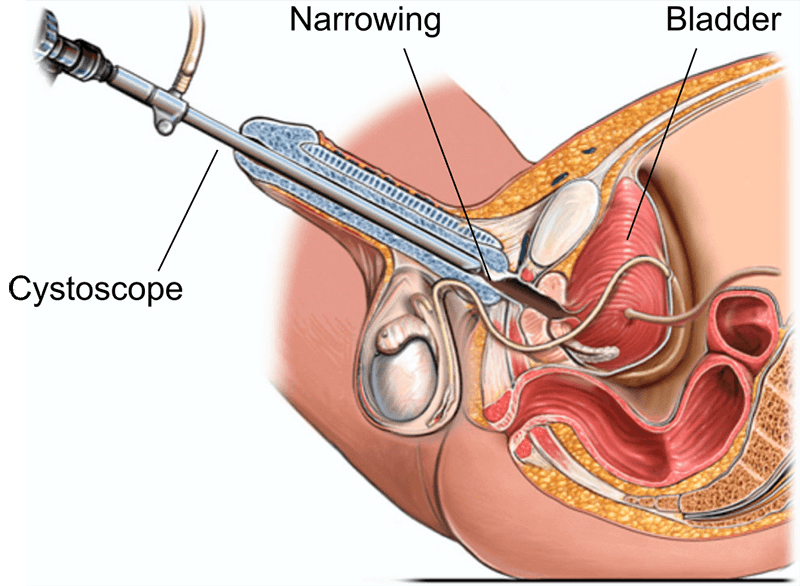What is Urological Reconstructive Surgery?
Urological reconstructive surgery involves complex procedures designed to restore or improve the function of the urinary system. It addresses conditions such as injuries to the urinary tract, bladder reconstruction after cancer or trauma, and urethral strictures. This type of surgery aims to enhance the patient’s quality of life by restoring urinary function and alleviating pain.
Conditions Treated with Urological Reconstructive Surgery
- Urethral Strictures: Narrowing of the urethra that restricts urine flow.
- Bladder Reconstruction: Restoring function after trauma or cancer-related surgery.
- Trauma or Injury to the Urinary Tract: Restoring normal function after accidents or injuries.
- Congenital Urological Disorders: Birth defects affecting the urinary tract.
- Urinary Incontinence: Surgery to correct loss of bladder control.
- Prostate Cancer Reconstruction: Restoring urinary and sexual function after prostate surgery.
- Pelvic Organ Prolapse: Reconstructive surgery for conditions causing pelvic organs to drop.
Urological Reconstructive Surgery Procedure
- Consultation and Diagnosis:
The process begins with a comprehensive evaluation, including imaging studies and physical examination, to assess the severity of the condition. - Pre-Operative Planning:
Your surgeon will determine the best surgical approach based on your specific needs, which could involve minimally invasive or open surgery. - Surgical Procedure:
The surgery involves repairing, removing, or reconstructing parts of the urinary system. For example, a bladder reconstruction may require using a section of the intestine to create a new bladder. - Post-Surgery Care:
After surgery, patients may require a catheter or stent, and pain management is provided. Follow-up appointments will track healing and address any complications. - Recovery:
Recovery times vary, but many patients can return to normal activities within a few weeks. Long-term follow-up care is essential for maintaining function and monitoring for complications.
Advanced Techniques in Urological Reconstructive Surgery
- Robotic-Assisted Surgery:
Minimally invasive robotic surgery provides greater precision and faster recovery for procedures like prostate reconstruction. - Laparoscopic Surgery:
Keyhole surgery for bladder and urethral repairs, reducing hospital stays and recovery time. - Tissue Engineering and Urethral Reconstruction:
Innovations in tissue engineering help reconstruct damaged urethra using synthetic grafts or tissue cultures. - Laser Surgery:
Used for the treatment of prostate enlargement and urethral strictures, offering reduced bleeding and faster recovery.
Why Choose India for Urological Reconstructive Surgery?
India has become a leading destination for urological reconstructive surgery due to its world-class medical facilities, skilled surgeons, and affordable treatment options.
Key Advantages of Choosing India:
- Highly Experienced Surgeons: Skilled in complex urological surgeries, many with international training.
- Cutting-Edge Technology: Hospitals in India are equipped with the latest technology for minimally invasive surgeries and advanced diagnostic tools.
- Affordability: The cost of urological reconstructive surgery in India is significantly lower compared to Western countries without compromising on the quality of care.
- Short Waiting Times: Patients can access timely surgical interventions, reducing wait times compared to many other countries.
- Comprehensive Care: India offers holistic care that includes medical, surgical, and rehabilitative services, ensuring better long-term outcomes.
Why Choose Healtour Solutions for Urological Reconstructive Surgery?
Healtour Solutions connects patients with the best hospitals and surgeons in India for urological reconstructive surgery. We guide you through the entire process—from consultation to recovery—ensuring a seamless experience.
Key Benefits of Choosing Healtour Solutions:
- Expert Guidance: We connect you with top urological specialists for your surgery and recovery.
- Personalized Treatment Plans: Tailored treatment to suit your specific medical condition and needs.
- Affordability and Transparency: Competitive pricing and clear cost breakdowns, with no hidden fees.
- Post-Surgery Support: We provide comprehensive follow-up care to ensure a smooth recovery.
- Accredited Hospitals: We work with internationally recognized medical centers that meet high standards of care and patient safety.
Cost of Urological Reconstructive Surgery in India
The cost of urological reconstructive surgery in India can vary depending on the complexity of the surgery, the hospital, and the surgeon’s experience. On average, prices range between INR 100,000 to INR 500,000 (approximately USD 1,200 to USD 6,000), making it an affordable option compared to Western countries.
Factors Affecting the Cost:
- Type of surgery (minimally invasive vs. open surgery)
- Length of hospital stay
- Surgeon’s expertise
- Hospital’s location and facilities
Benefits of Urological Reconstructive Surgery
- Restoration of Urinary Function: Corrects conditions like incontinence and urethral structures, allowing normal urinary function.
- Improved Quality of Life: Relieves discomfort, reduces pain, and improves daily activities.
- Faster Recovery with Minimal Scarring: Minimally invasive techniques lead to shorter recovery periods and minimal scarring.
- Prevention of Future Complications: Surgical intervention can prevent further deterioration and improve long-term health outcomes.
- Restores Confidence: Many patients experience a boost in their confidence and mental well-being after successful surgery.
Post-Procedure Care
- Follow-up Visits: Regular check-ups to ensure the surgery site is healing and to monitor any potential complications.
- Medication: Pain relief and possibly antibiotics to prevent infection.
- Lifestyle Modifications: Patients are advised to stay hydrated, maintain a healthy diet, and avoid heavy lifting.
- Rehabilitation: For some procedures, physical therapy or pelvic floor rehabilitation may be required to restore optimal function.
FAQs
- What is urological reconstructive surgery?
It involves surgeries to correct or rebuild parts of the urinary tract affected by injury, disease, or birth defects. - What conditions can be treated with urological reconstructive surgery?
Conditions like urethral strictures, bladder reconstruction, pelvic organ prolapse, and trauma to the urinary tract. - Is the surgery minimally invasive?
Many procedures can be performed using minimally invasive techniques like laparoscopy and robotic surgery. - How long does it take to recover from urological reconstructive surgery?
Recovery time varies by surgery type, but many patients can return to daily activities within 2-6 weeks. - What are the risks associated with urological reconstructive surgery?
Potential risks include infection, bleeding, urinary retention, and complications from anesthesia. - Will I need follow-up surgery?
In most cases, one surgery is enough, but follow-up visits are essential to ensure full recovery. - Is there a risk of incontinence after surgery?
While the goal is to restore normal function, some patients may experience temporary or permanent incontinence. - Can urological reconstructive surgery improve my sexual function?
Yes, many procedures also aim to restore or improve sexual function, particularly after prostate or bladder surgeries. - Is the surgery covered by insurance?
Many insurance plans cover urological reconstructive surgery, but it's important to confirm with your provider. - How do I know if I need urological reconstructive surgery?
If you are experiencing severe urinary dysfunction, incontinence, or complications from injury or disease, consult a urologist for evaluation.




